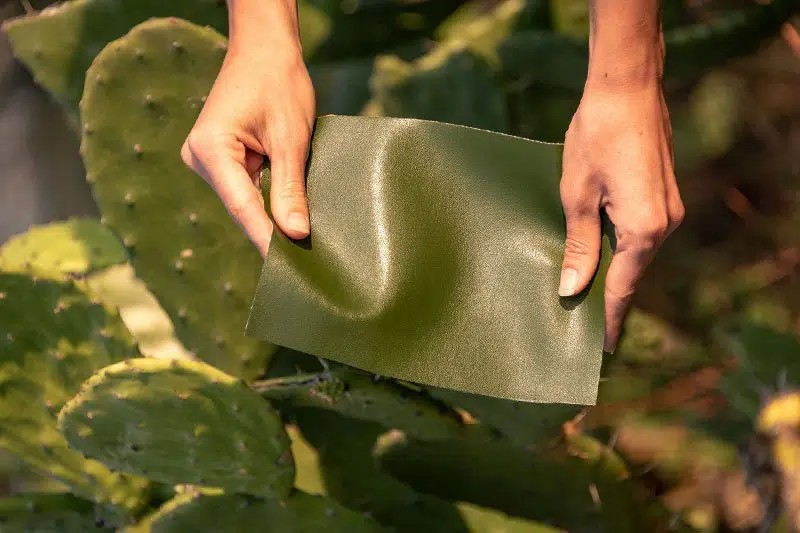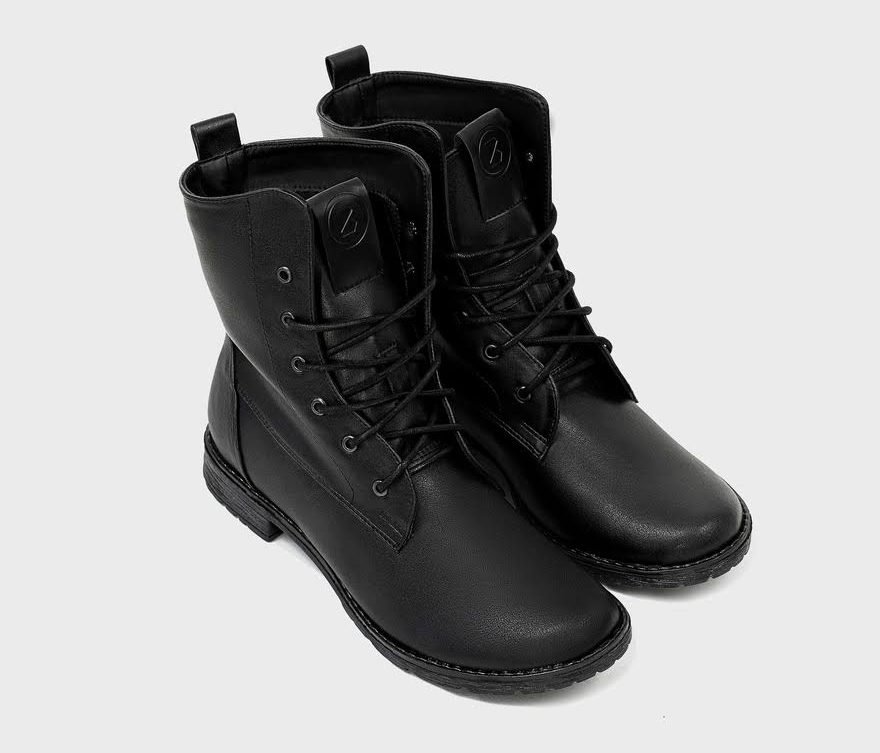Cactus leather is transforming the fashion landscape, offering a sustainable and eco-friendly alternative that has garnered attention for its cruelty-free approach. Derived from the prickly pear cactus, this groundbreaking material presents numerous benefits:
Lower Carbon Footprint: Cactus leather stands out with a significantly reduced carbon footprint compared to traditional leather and synthetic fabrics. This makes it the preferred choice for environmentally conscious fashion enthusiasts.
Reduced Water Intensity: Unlike traditional leather production, cactus leather demands less water, contributing to crucial water conservation initiatives in the fashion industry.
Animal-Friendly: Ethical and cruelty-free, cactus leather addresses consumer concerns about animal welfare in the fashion supply chain, providing a guilt-free alternative.
Innovative Manufacturing: The non-toxic process of transforming cactus into leather eliminates the use of harmful chemicals, fostering a cleaner and more sustainable production process.
Environmental Impact of Cactus Leather:
Availability: Harvesting young or mature cactus leaves, the primary raw material, ensures a sustainable and renewable source. With leaves regrowing in 6-8 months, the process allows for repeated harvests.
Carbon Emissions: Cactus leather remarkably reduces carbon equivalent greenhouse gas emissions by 1,864.02% compared to animal leather and 77.69% compared to polyurethane (PU) synthetic leather, emphasizing eco-friendly production practices.
Water Conservation: Achieving a remarkable 164,650% water savings compared to animal leather and 190% compared to PU synthetic leather, cactus leather benefits from the low-water requirements of cacti and rain-fed cultivation.
Carbon Negative Farming: Acting as a natural carbon sink, cactus enables organic plantations to absorb 8,100 tons of CO2 annually in just 14 acres, surpassing the plantation’s own carbon footprint of 15.30 tons, showcasing its regenerative potential.
Ethical and Transparent: Nopal Cactus ‘leather’ not only excels in environmental superiority but also maintains ethical and transparent supply chain practices, highlighting responsible sourcing and manufacturing.
Quality Assurance: Overcoming historical concerns associated with vegan leather, cactus leather ensures high quality, durability, and breathability, dispelling misconceptions about alternatives like ‘pleather.’
In conclusion, Cactus leather emerges as a sustainable champion, offering a responsible choice for environmentally conscious consumers and reshaping the landscape of ethical and stylish fashion.




Leave a Comment